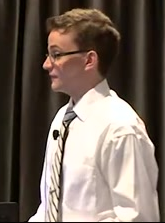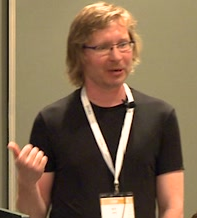The compiler is to blame for everything -- Andrey Karpov
Many programmers are very fond of blaming the compiler for different errors. Let's talk about it.
The compiler is to blame for everything
by Andrey Karpov
From the article:
When a programmer tells you that the compiler causes an error, it is a lie in 99% of cases. When you start investigating the problem, you usually find out the following reasons:
- an array overrun;
- an uninitialized variable;
- a misprint;
- a synchronization error in a parallel program;
- a non-volatile variable used;
- code leading to undefined behavior;
- etc.

 Have you registered for CppCon 2015 in September? Don’t delay –
Have you registered for CppCon 2015 in September? Don’t delay –  Have you registered for CppCon 2015 in September? Don’t delay –
Have you registered for CppCon 2015 in September? Don’t delay –  A nice recapitulative video of what C++17 could be:
A nice recapitulative video of what C++17 could be: Have you registered for CppCon 2015 in September? Don’t delay –
Have you registered for CppCon 2015 in September? Don’t delay –